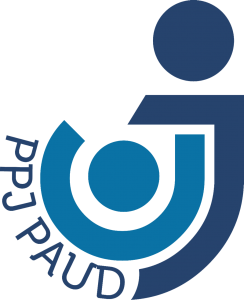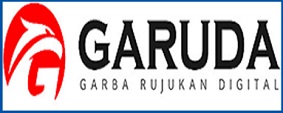Teachers’ perception towards early childhood literacy development methods in ‘aisyiyah bustanul athfal (ABA) kindergarten
DOI:
https://doi.org/10.26555/jecce.v5i1.5006Abstract
The literacy ability of early childhood is inseparable from their teacher’s role in teaching literacy for children. The knowledge and methods used by the teacher are expected to be able to improve children's skills to comprehend the content of text and become active readers in the future. This research aims to find out teacher's perception towards early childhood literacy development methods in ‘Aisyiyah Bustanul Athfal (ABA) Kindergarten in Depok Sub-district. The research method employed in this research is qualitative descriptive. The sampling technique is purposive sampling in order to obtain 8 participants out of 4 kindergartens in Depok Sub-district. The research data were analyzed by thematic analysis technique using NVivo 12 software. The findings revealed that: (1) teachers’ perception towards early childhood literacy development is mostly defined as the skill to reading and writing. (2) Teacher implementation on the early childhood literacy is carried out through activities involving printed learning media. (3) The development method for early childhood literacy learning is still limited to storytelling and writing. (4) School support for early childhood literacy development methods consists of providing facilities and infrastructures, and supporting teachers create published story books. However, the problems and obstacles faced by teachers are the lack of availability of reading books and inadequate infrastructure.
References
Abidin, Y., Mulyati, T., & Yunansah, H. (2017). Pembelajaran Literasi: Strategi Meningkatkan Kemampuan Literasi Matematika, Sains, Membaca dan Menulis. Bumi Aksara.
Adawiyah, L. R., & Gunasyah, G. (2018). Persepsi Guru Terhadap Pelaksanaan Gerakan Literasi di Sekolah Dasar Negeri Terakreditasi A Kota Surabaya. JPGSD : Jurnal Penelitian Pendidikan Guru Sekolah Dasar, 6(4), 608–617.
Bracefield, C., & Woodgate, F. (2020). Early Literacy And The Teacher’s Role. He Kupu The Word, 6(3), 14–19.
Braun, V., & Clarke, V. (2006). Using Thematic Analysis In Psychology. Qualitative Research in Psychology, 3(2), 77–101.
Cetin, O., Gulhan, M., & Katranci, M. (2018). A Study of the Effect of Pre School Education on Early Literacy Skills. International Online Journal of Education Scineces, 10(5), 201–221.
Clemens, N., Ragan, K., & Oscar, W. (2016). Reading Difficulties in Young Children: Beyond Basic Early Literacy Skills. Policy Insights from the Behavioral and Brain Sciences, 3(2), 177–184.
Darban, A. A., & Baha’uddin. (2010). Aisyiyah dan Sejarah Pergerakan Perempuan Indonesia: Sebuah Tinjauan Awal. Eja Publisher.
Dewayani, S. (2017). Menghidupkan Literasi di Ruang Kelas. PT. Kanisius.
Dewayani, S. (2019). Model Pembelajaran Literasi Untuk Jenjang Prabaca dan Pembaca Dini. Kemendikbud.
Ghoting, S. N., & Martin-Diaz, P. (2006). Early Literacy Storytimes @Your Library: Partnering with Caregivers for Success. American Library Association.
Hapsari, W., Ruhaena, L., & Pratisti, W. D. (2017). Peningkatan Kemampuan Literasi Awal Anak Prasekolah Melalui Program Stimulasi. Jurnal Psikologi, 44(3), 177–184. https://doi.org/10.22146/jpsi.16929
Hidayah, L. (2017). Implementasi Budaya Literasi di Sekolah Dasar Melalui Optimalisasi Perpustakaan: Studi Kasus di Sekolah Dasar Negeri Di Surabaya. JU-Ke : Jurnal Ketahanan Pangan, 1(2), 48–58. http://riset.unisma.ac.id/index.php/JU-ke/article/view/791
Ismail, L. (2017). Pengenalan Perpustakaan Kepada Anak Usia Dini. Jurnal Imam Bonjol :Kajian Ilmu Informasi Dan Perpustakaan, 1(2), 159–170.
Kompri. (2015). Manajemen Pendidikan 2. Alfabeta.
Kostelnik, M. J., Soderman, A. K., & Whiren, A. P. (2017). Kurikulum Pendidikan Anak Usia Dini Berbasis Perkembangan Anak. Kencana.
Maharani, E. A. (2019). Teachers Perception towards Literacy in Early Childhood Education: A Qualitative Study of Teaching Approach and Learning Outcomes. Proceedings: International Conference on Early Childhood Development, 18–28.
Nurdin, N., & Anhusadar, L. O. (2021). Efektivitas Pembelajaran Online Pendidik PAUD di Tengah Pandemi Covid 19. Jurnal Obsesi : Jurnal Pendidikan Anak Usia Dini, 5(1), 686–697. https://doi.org/10.31004/obsesi.v5i1.699
Padmadewi, N. N., & Artini, L. P. (2018). Literasi di Sekolah, dari Teori ke Praktek. Nilacakra.
Puslitjakdikbud. (2019). Indeks Aktivitas Literasi Membaca. https://pskp.kemdikbud.go.id/front_2021/produk/infografis/detail/34/indeks-aktivitas-literasi-membaca
Putri, W. D. (2018, January). Literasi Anak di Indonesia Dinilai Masih Buruk. M.Republika.Co.Id. https://m.republika.co.id/amp/p2r22e359.
Roskos, K. (2013). The Essentials of Early Literacy Instruction. John Carroll University.
Schmoker, M. (2012). Menjadi Guru yang Efektif. Erlangga.
Solin, M. (2018). Sastra, Listerasi, dan Karakter. Prosiding Nasional: Seminar Literasi Sastra Dalam Penguatan Pendidikan Karakter, 1–10. https://lp2m.umnaw.ac.id/file_data/file/1. solin.pdf#page=7
Sugiyono. (2017). Metode Penelitian Pendidikan: Pendekatan Kuantitatif, Kualitatif, dan R&D. Alfabeta.
Suhariyanti. (2018). Peran Guru Dalam Kegiatan Literasi Untuk Anak Usia Dini. Prosiding Nasional Seminar Literasi Sastra Dalam Penguatan Pendidikan Karakter Penanggung, 76–83.
Sujiono, Y. N. (2013). Konsep Dasar Pendidikan Anak Usia Dini. PT. Indeks.
Susanto, A. (2018). Pendidikan Anak Usia Dini (Konsep dan Teori). Bumi Aksara.
Warganegara, N. S., Pitoewas, B., & Yanzi, H. (2013). Persepsi Guru Terhadap Pelaksanaan Uji Kompetensi Guru Di Sma Negeri 3 Bandar Lampung Tahun Pelajaran 2012/2013. Jurnal Penelitian Pendidikan.
Downloads
Published
How to Cite
Issue
Section
License
Copyright (c) 2022 Rany Maylani

This work is licensed under a Creative Commons Attribution-ShareAlike 4.0 International License.
Authors who publish with this journal agree to the following terms:
- Authors retain copyright and grant the journal right of first publication with the work simultaneously licensed under a Creative Commons Attribution-ShareAlike 4.0 International License that allows others to share the work with an acknowledgement of the works authorship and initial publication in this journal.
- Authors are able to enter into separate, additional contractual arrangements for the non-exclusive distribution of the journals published version of the work (e.g., post it to an institutional repository or publish it in a book), with an acknowledgement of its initial publication in this journal.
- Authors are permitted and encouraged to post their work online (e.g., in institutional repositories or on their website) prior to and during the submission process, as it can lead to productive exchanges, as well as earlier and greater citation of published work (See The Effect of Open Access).














